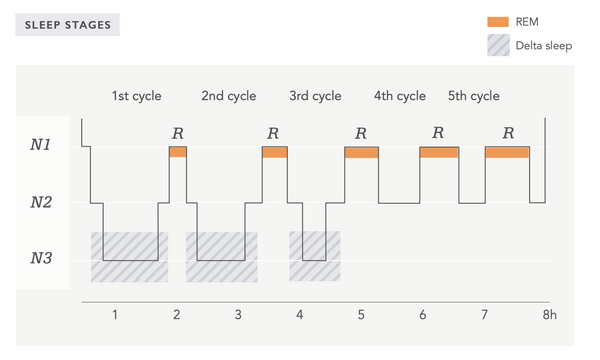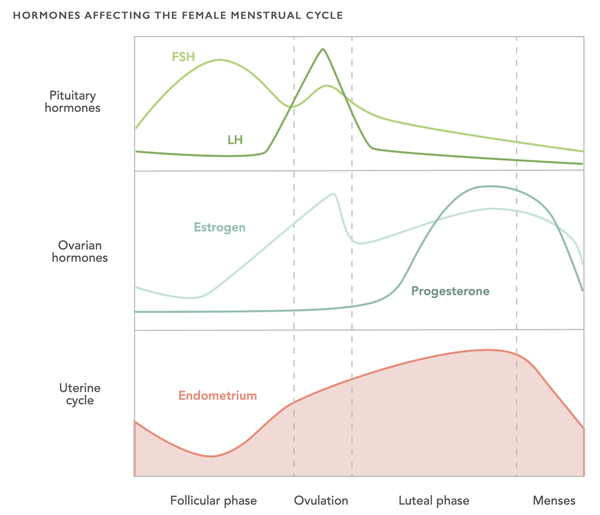‘’Adequate and good quality sleep supports human health in many ways, as well as the optimal functioning of the brain and body. Insomnia manifests as a difficulty falling asleep and staying asleep or, for example, a tendency to wake up earlier than usual.’’
Occasionally experienced insomnia is very common for example due to temporarily experienced stress. However, prolonged insomnia affects the physical, cognitive and emotional functions and experiences of the body. This works in both directions: for example, prolonged stress or depression can cause a person to have insomnia. Women and the elderly suffer from insomnia more than men and younger people.
The regulation of sleep and wakefulness is particularly affected by circadian rhythm and sleep homeostasis, but also by various motivational factors. The suprachiasmatic nucleus (SCN) in the hypothalamus of the brain is the key regulator of the innate circadian rhythm, which lasts for about 24 hours in humans. Where the circadian rhythm regulates the timing of sleep at the appropriate time, sleep homeostasis provides an adequate amount of sleep during the day. However, motivational factors can act against these physiological regulatory mechanisms up to a certain limit.
Aging and gender have been found to have a clear impact on sleep quality and amount of sleep. For example, men are more susceptible to age-related changes in sleep quality. Although healthy women typically fall asleep faster, sleep longer, and have higher sleep efficiency than men, women report sleep difficulties more often than men and are more prone to insomnia than men.
One possible factor is the imbalance of circadian rhythm and sleep behavior. When looking at women’s body temperature and the production of melatonin, a so-called dark hormone, women’s internal clock directs them to sleep earlier than men. The menstrual cycle and other factors that affect fertility have also been shown to affect sleep quality, where one component is women’s hormonal function.

Image: Different stages of sleep (Biohacker Handbook, 2016).
The menstrual cycle usually does not affect the amount of overall sleep, nor sleep efficiency. However, for example, changes in the frequency of sleep spindles in the N2 phase and changes in REM sleep duration and delay have been observed, depending on the stage of the menstrual cycle. In the middle of the luteal phase of the menstrual cycle, when estradiol and progesterone levels begin to decline, the frequency of sleep spindles is higher and the delay of REM sleep is shorter. Similarly, the time spent in REM sleep in the follicular phase of the menstrual cycle is longer than in the luteal phase. Hormonal contraception, in turn, may decrease the amount of deep sleep, as well as increase the amount of N2 phase and REM sleep.

Source: Optimize Your Lab Results Online Course.
Changes during pregnancy and menopause have been found to have effects on insomnia. For some, menopause can cause vasomotor symptoms, meaning symptoms that affect the diameter of blood vessels, which in turn may increase difficulty sleeping. In such cases, some people find that hormone replacement therapy also helps with sleep problems.
In women, changes in hormone levels have been found to affect sleep difficulties at different stages of life, but it is difficult to say whether the challenges are due solely to these sex hormones. For example, menstrual pain, changes in the body, and related sensations during pregnancy, as well as other life changes that are related to menopause, can affect mood and thus sleep quality.
The effect of male hormonal activity on sleep has also been studied. Testosterone secretion is linked to sleep cycles, as the highest phase of secretion occurs just before or after the REM sleep phase, but such cyclicality has not been shown to have a clear effect on sleep itself and its quality. Biological sex and sex hormones seem to have an impact on sleep problems, but the link between them is not yet fully understood.
To conclude
It is good to remember that occasionally experienced insomnia is quite common. From such periods, the body can recover precisely due to the factors that regulate the sleep-wake cycles. By monitoring one’s quality of sleep and sleeping behavior, and understanding what factors can affect these, one can optimize the highest quality sleep possible and thereby provide a balanced state for the body and mind to function.
- - -
Written by:
Janika Ruuska
Neuroscientist, sexual counselor and biohacker
Editing the delivery:
Olli Sovijärvi
Title image: Josephine Wall - Pscyhe's Dream





